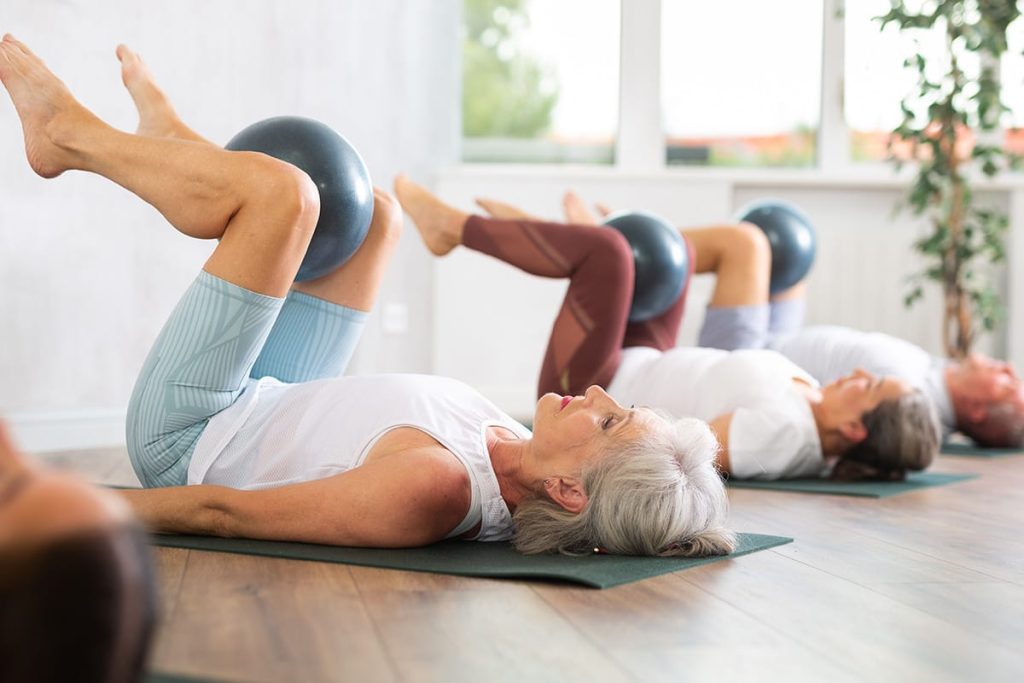As we grow older, maintaining balance becomes essential for staying active and independent. Everyday tasks like taking a shower, grocery shopping, or cooking rely heavily on balance, which often goes unnoticed until it becomes an issue. Experts emphasize that good balance is key to avoiding falls and injuries, enabling older adults to lead a fulfilling life. In the United States alone, about 3 million older adults seek medical care annually due to fall-related injuries, according to the Centers for Disease Control and Prevention (CDC). However, falling doesn’t have to be an inevitable part of aging.
Roopa Anmolsingh, a geriatrician who developed balance classes at the Cleveland Clinic, dispels the myth that aging guarantees falls. “You can control how you fall or even if you fall,” she says. The key lies in understanding your balance and taking steps to improve it before it becomes a concern.
Start Asking These Questions About Your Balance
To stay proactive, experts recommend evaluating your balance starting at age 50. Here are some questions to guide you:
1. Do I Ever Feel Unsteady?
Feeling unsteady occasionally could indicate an underlying issue. Balance is influenced by more than just muscles and bones; it also involves blood pressure, medications, inner-ear function, and the nervous system. If you experience unsteadiness, even sporadically, consult a doctor for a thorough evaluation.
For a quick self-assessment, try standing on one leg for 10 seconds next to a wall or sturdy support. If you can’t maintain your balance, it might be time to see a physical therapist.
Another test is the “Timed Up and Go” (TUG) assessment. Sit in a chair and start a timer as you stand, walk 10 feet, return, and sit down. If it takes more than 15 seconds, your fall risk is high. If you complete it in 12 seconds or less, your risk is minimal.
The National Council on Aging also offers an online tool to assess fall risk, which includes questions about medications, mobility challenges, and fear of falling.
2. What Can I Do to Improve Balance?
Improving balance starts with regular physical activity. Muscle mass begins to decline as early as your 30s, making it crucial to stay active throughout life. However, it’s never too late to prioritize balance-enhancing exercises.
Recommended Activities:
- Tai Chi and Yoga: These practices involve slow, controlled movements that shift body weight, making them ideal for older adults.
- Daily Exercises: Incorporate simple activities into your routine, such as:
- Standing on one foot while waiting in line.
- Sitting and standing from a chair without using armrests.
- Performing three-way leg lifts (front, side, and back) while holding onto a chair.
- Side-stepping in both directions at the kitchen counter.
3. How Often Should I Exercise?
For overall health and balance, the National Institute on Aging recommends at least 150 minutes of physical activity weekly. This should include a mix of:
- Stretching to improve flexibility.
- Aerobic exercises to increase heart rate.
- Strength training using weights or resistance bands.
For balance-specific exercises, consistency is vital. Research shows that it takes at least 50 hours of training to see measurable improvements. Repetitive practice not only strengthens muscles but also trains the brain to respond effectively to slips or trips. Greg W. Hartley, a physical therapy professor specializing in geriatrics, compares this to how athletes train through repetition. “You’re doing repetition to train for everyday balance activities,” he explains.
Tips for Maintaining Balance
- Stay Physically Active: Regular exercise improves muscle strength, coordination, and overall health.
- Wear Supportive Shoes: Avoid high heels or slippers without grip.
- Declutter Your Home: Remove tripping hazards like loose rugs and cords.
- Use Assistive Devices: Consider grab bars in the bathroom or handrails on stairs.
- Stay Hydrated and Eat Well: Proper nutrition supports muscle and bone health.
Why Balance Matters
Good balance helps you maintain independence, avoid injuries, and stay confident in your daily activities. It’s a skill that requires continuous effort and attention, but the benefits far outweigh the effort. With simple steps and consistent practice, you can enhance your balance and enjoy a more active lifestyle.
Disclaimer:
Our editorial team has fact-checked this article to ensure its accuracy and eliminate any potential misinformation. We are committed to upholding the highest standards of integrity in our content.





More Stories
The Importance of Balance: Tips and Tests for Older Adults
The Importance of Balance: Tips and Tests for Older Adults
The Importance of Balance: Tips and Tests for Older Adults